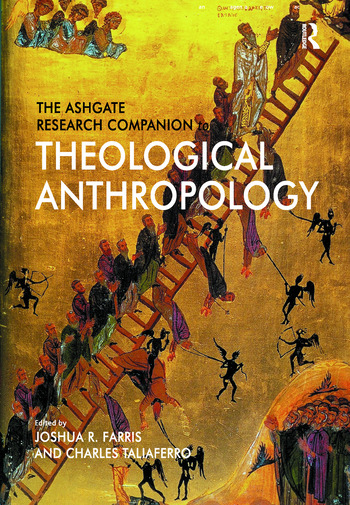The Evangelical Philosophical Society (EPS) is pleased to introduce a unique and ongoing Philosophy of Theological Anthropology project! Your contributions, readership, exploration and support are most welcomed. For more on this theme and Christian contributions to philosophy, become a subscriber – for as low as $25 per year! – to Philosophia Christi, the peer-reviewed journal of the EPS [all EPS members receive Philosophia Christi as part of their membership].
Summary of Project
Inaugurated in 2018, The Philosophy of Theological Anthropology is an EPS web project devoted to the foundations and meta-themes of theological anthropology. Contributors seek to highlight a variety of new topics, which are at present underexplored, and fresh philosophical perspectives of older topics. This is an opportunity for philosophers and constructive theologians to explore foundational and innovative themes within theological anthropology from a philosophical perspective.
Topics of interest in this web series include areas of epistemology, metaphysics, Christology, and traditioned anthropology. We are interested in approaches that reconceive in fresh new ways the conditions and foundations for thinking about theological anthropology. This amounts to critical interrogations of commonly held assumptions in the contemporary theological literature on anthropology. We invite contributions that are extensions of previously published works as well as unique speculative pieces.
Areas of Web Project
The present issue will contain topics on anthropology, philosophy of mind, imago Dei [broadly conceived], with the aim toward advancing the philosophical foundations and implications of a theistic anthropology.
Current Papers
- Glenn Butner, “Theology without Persons? Theological Anthropology and Kevin Hector’s Therapeutic Theory of Language Use.”
- Christopher Woznicki, “Atonement and Anthropology: T. F. Torrance’s Doctrine of Atonement as a Test Case.”
- Benjamin H. Arbour and John R. Gilhooly, “Transgenderism, Human Ontology, and the Metaphysics of Properties.”
- Graham Floyd, “The Politics of Theological Anthropology: Political Naturalism, Creation, and the imago Dei.”
Core Project Questions
- How should we approach the anthropos and its telos?
- Furthermore, how might we understand human ‘selfhood’ and ‘identity’?
- What are the benefits and liabilities of an Analytic Theology approach?
- Analytic Theology and Christological anthropology?
- What are the benefits and liabilities of a more Phenomenological approach to the anthropos?
- What is the distinctive contribution of philosophy of mind/personal ontology in contemporary theological anthropology?
- What role does or should the sciences play in our theological constructions?
- What are the benefits of a Christological method to anthropology?
- Christological anthropology as an organizing motif?
- Is a Christological method sufficient for theological anthropology?
- From the Christian tradition, what is the Good News for the anthropos and how might that shape approaches to a study of what it means to be human?
- What role do ecclesial, theological, or philosophical traditions play in our theological construction?
- What substantive place does reason and experience have in understanding humans?
- What are the different religious/denominational perspectives on the nature of human beings?
- How might spiritual features and formation of a human being shape an understanding of the nature and purpose of a human being?
- What are the distinctive ideas within a Christian anthropology and other religious anthropologies?
- How might theologies and philosophies of the human person shape theologies and philosophies of ‘public life’?
Find this Project Interesting? See these other EPS Web Projects
- “Philosophical Discussions on Marriage and Family Topics” with Michael Austin, Michael McFall, Daniel J. Hill and many others!
- “Christ-Shaped Philosophy” Project with Paul Moser and dozens of other contributors!
- “Christian Philosophers in the ‘Secular Academy'” Project with Marylin McCord-Adams, Christopher Tollefsen, and many others!
Want to Contribute to the Philosophy of Theological Anthropology Project?
Options for contributing: reflection essays, critical responses, book reviews, exploratory essays, dialectical pieces, methodological hybrids (biblical studies to philosophy), how to communicate to the public.
Length: Shorter (e.g., 1500-2000 words) and longer papers (e.g., 6,000 words) are permitted. You are welcome to work with the Project Editors on length issues.
Suggested topics: evolution and theological anthropology, imago Dei, the metaphysics of gender and sexuality, method, Christological anthropology, religious epistemology, and human ontology.
Main Project Categories:
- Denominational and Traditioned Theological Anthropology
- Gender, Sex, and Sexuality
- Sociology, Ethnography, and Theological Anthropology
- Science, Design, and Anthropology
- Technology and Posthumanism
- Morality and Theological Anthropology
- Disciplines: Philosophy, Biblical Theology, Philosophical Theology, Systematic/Constructive Theology, Retrieval Theology, Social Science, Humanities (N.B. the aim of the investigation ought to impinge on philosophical-theological matters)
Submit a Proposal: Email a topic, thesis and description of the proposed paper (250 words max) to Project Editors Joshua Farris and Nathan Jacobs [see below]. They will help guide your proposal toward being a contribution of this web project.
Lead Project Editors & Coordinators:
- Dr. Joshua R. Farris [joshua.r.farris@gmail.com], Farris is currently the Humboldt Experienced Researcher Fellow at the University of Bochum in Bochum, Germany, focusing on biologically-engaged religious anthropology. His forthcoming book is The Creation of Self: A Case for the Soul (John Hunt Publishing, 2023).
- Dr. Nathan A. Jacobs [nathanandrewjacobs@gmail.com; nathan.jacobs1@uky.edu], University of Kentucky.
Past Editorial Assistant: Dave Strobolakos.
Web Project Overseer: Joseph E. Gorra, Consulting Editor, Philosophia Christi.
Please consider becoming a regular annual or monthly financial partner with the Evangelical Philosophical Society in order to expand its reach, support its members, and be a credible presence of Christ-shaped philosophical interests in the academy and into the wider culture!





